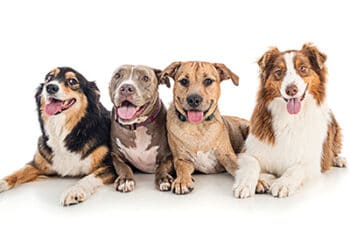
Your cat’s overall health may change over time as they develop from a kitten to an adult cat and senior. Naturally, depending on the age you adopt or bring home your cat, you may see differences in behavior or weight as your furry family member gets older. As your cat ages, some pet health conditions may become more common. Fortunately, we sat down with Trupanion veterinarian Dr. Sarah Nold to learn more about hyperthyroidism in cats and what it may mean for your best friend.
Hyperthyroidism in cats

What is hyperthyroidism in cats?
Some medical conditions are well known, while others you may need to learn more about when it comes to your furry friends. Nold explains more about the pet health condition below.
“Hyperthyroidism is a very common and often very treatable disease in cats. In fact, it’s the most common endocrine disease of cats. Also, this disease affects middle-aged to older cats, with an average age of 12-13 years at diagnosis. I’ve had two of my cats diagnosed and treated for hyperthyroidism. Further, hyperthyroidism is an overproduction of thyroid hormone by the thyroid gland.”
So, how do you know if something is going on with your cat? If your cat starts to slow down or has a behavior change, it’s always a good idea to talk with your veterinarian. They can help determine what may be causing your pet to act differently and recommend a treatment plan.
What are the signs of hyperthyroidism?

Pets can act differently for several reasons. For example, a change in their environment, a recent move to a new home, or even an addition to the family can cause various behavior cues in your furry friend. While every pet is different, some cats may try to show you they’re feeling unwell.
Nold points out what to look for when it comes to hyperthyroidism.
Consider the following signs:
- Weight loss
- An increased appetite
- Vomiting
- Behavioral changes like hyperactivity or an increased vocalization
Not all pets let you know they’re feeling sick, especially cats. Also, if there’s a change in your cat’s day-to-day activity, consider setting an appointment with your veterinarian for a check-up to make sure your best friend is in optimum health. For more on cat vocalizations, click here.
Trupanion claims data
We sat down with the Trupanion data team to look further into hyperthyroidism claims and the cost of medical care for your cat. For example, “the average claimed amount for hyperthyroidism is $150. Also, the Trupanion policy has paid over 19,400 claims with a total claims payout of over $2 million,” says Trupanion data analyst Malia Prescott.
Whether your pet needs surgery, medical treatment, or a prescription, you want to know they can get the medical care they need. Consider how a Trupanion policy can be there for your pet during their lifetime.
What is the treatment plan for hyperthyroidism?
Every cat is different and so is every diagnosis. Some pets may need a more extensive treatment plan while others may need short-term care. So, what can you expect when it comes to your cat’s treatment? For example, “Treatment options may include anti-thyroid drugs, prescription diets, surgery, and radioactive iodine therapy,” says Nold
Although not a prescription, one of the best ways to help your cat through any form of medical treatment is to give them plenty of cuddles, cozy downtime, and interaction.
Naturally, your cat will love the extra attention and affection! Further, spending quality time with your furry family member when they’re feeling sick, can help boost their spirit. After all, what cat doesn’t love a few cuddles on the couch?

Hyperthyroidism in cats is a treatable disease with the help of your veterinarian
An illness like hyperthyroidism can show up anytime during your cat’s life. But by talking with your veterinarian, staying on the treatment plan, and giving plenty of snuggles, your cat may be on their way to recovery.
For more on cat health, read Heart Murmur in Cats: What You Need to Know
Terms and conditions do apply. We love informed decisions. See our policy for full coverage details.
Trupanion is a registered trademark owned by Trupanion, Inc. Underwritten in Canada by Omega General Insurance Company and in the United States by American Pet Insurance Company, 6100-4th Ave S, Seattle, WA 98108. Please visit AmericanPetInsurance.com to review all available pet health insurance.


